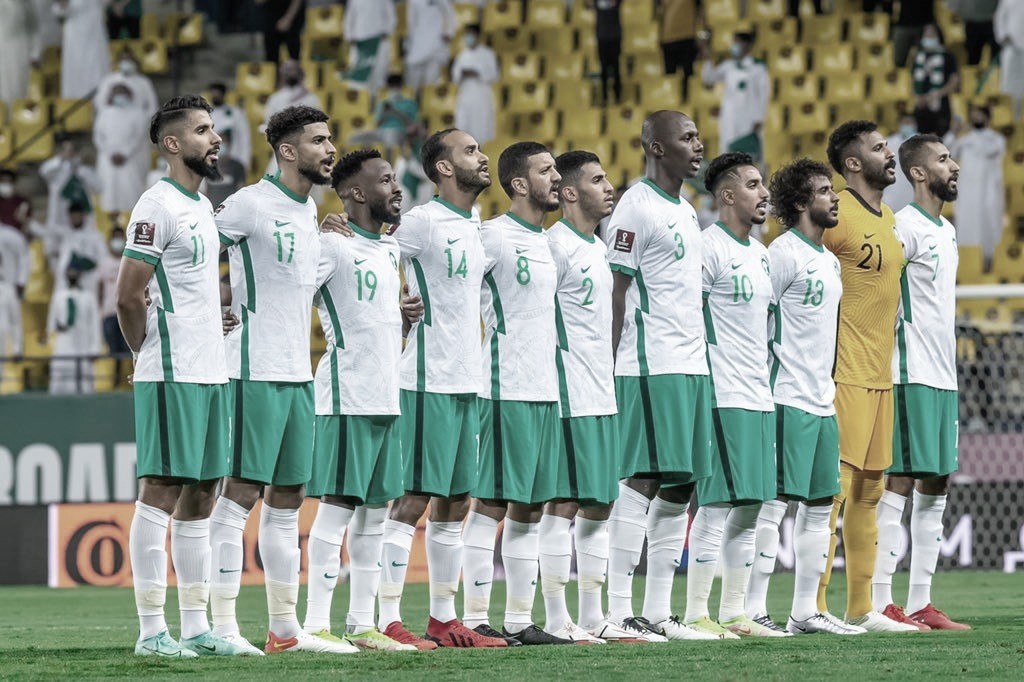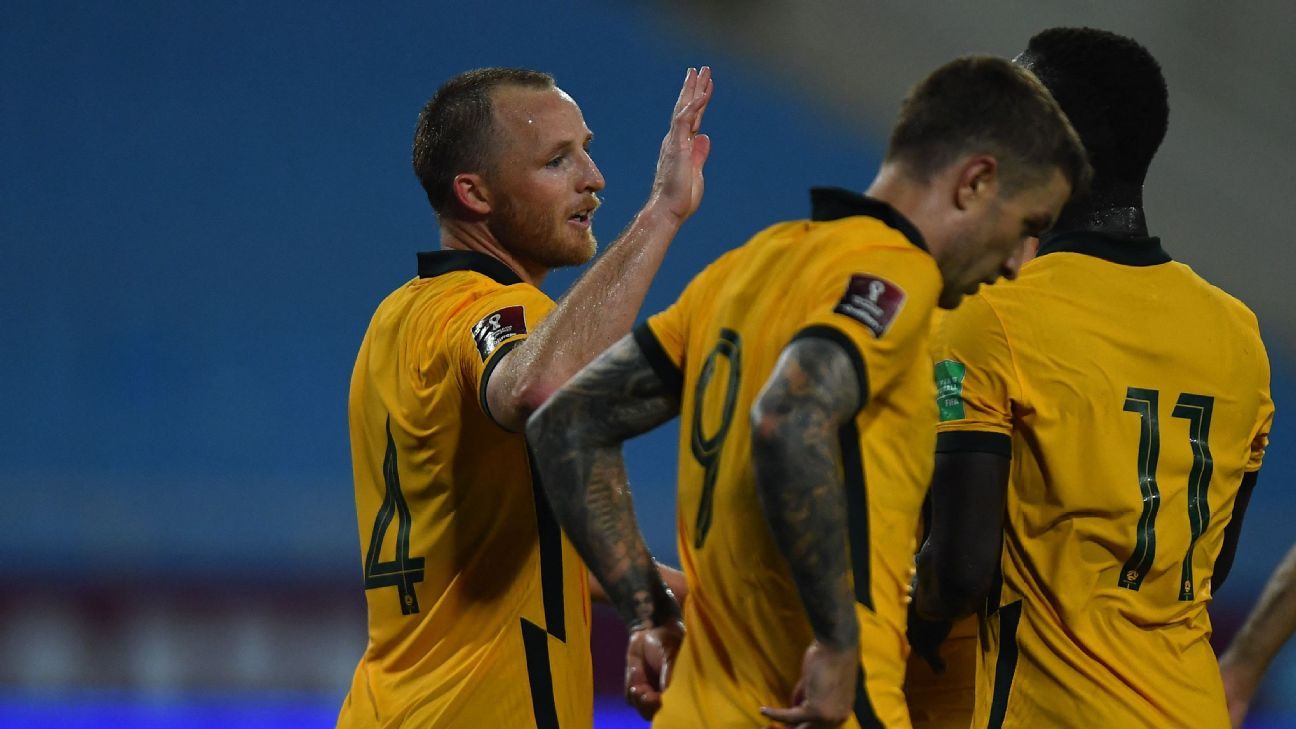Japan is on the verge of a blowing failure - the 2022 FIFA World Cup campaign is revealing this
It's just two matchdays so it was too early to decide who can book places in Qatar. Yet the expectation people wanted to see, instead, came out with tons of surprise. One among them is shockingly Japan.
The qualifying route for Qatar was initially smooth, the Japanese conquered the second round with no flaws, eight straight wins to reach the third round in a comfortable fashion. There, a wrong impression was created: Japan would go and occupy the no.1 spot in the third round, easily heading for Qatar.
However, after just two games, Japan is facing a major danger of not qualifying for the World Cup. This came amidst the way how Japan showed up in the qualification. So, why should Japan's supporters be worried about such a scenario like this?
This came when Japan started its campaign in the group containing Oman, Vietnam, Australia, China and Saudi Arabia. Among all of them, Japan was ranked the highest. This created a sentiment that Japan would go to take the first place, with a superior squad composed the likes of players like Takehiro Tomiyasu, Yuya Osako, Takefusa Kubo, Maya Yoshida and especially Takumi Minamino. However, Japan failed to achieve the needed six after just two first matchdays.
The game against Oman happened in Suita, where Japan was expected to grab three points, given Oman's winless record against Japan until the match began. Yet, as the match progressed, Branko Ivanković's Oman proved to be too disciplined and organised against an open arrogant Japanese team, before the less known Issam Al-Sabhi delivered a fatal shot at 89' to give the visitors from the Arabian Peninsula a shock historic victory. The thing was, Japan controlled possession and created several chances, but it was Oman who produced more fatal shot on goals, one was converted successfully. It was even weirder to see that Japan opted for 4-5-1, something that was unusual for a very well-prepared giant. The devastating shock loss at home led to the scrutinisation against Hajime Moriyasu, who was appointed coach after the 2018 World Cup. Many Japanese pundits had criticised Moriyasu's unorthodox lineup and his lack of knowledge about the opponents, in spite of having faced the same team back in the 2019 Asian Cup.
Japan then recovered with a 1-0 win over its neighbour China, but the last 20 minutes of the game saw Japan losing its creativity as China began to mount a number of pressures against Japan. It was the poor quality of Chinese forwards that prevented China from winning a point in the fixture held in Doha - as the Chinese government didn't apply bubble travel for the national team. Of course, overhyping China was wrong, as China's attack in these minutes ended with three lone shots, not hitting the target at all. Moriyasu was saved from being fired.
Yet these weaknesses unfolding the Japanese have a severe impact on how will Japan perform in the next month's fixtures, as opponents for Japan are Saudi Arabia and Australia. In the past, Japan did defeat them, though not so smooth, but enough to be in the World Cup. Now, the Japanese shall have a brewing point, but at the time when Japan dropped to the lowest point of its might, it has replaced Australia (which had been criticised the most prior to the third round) as a potential point bag. Saudi Arabia's coach Hervé Renard, who led Morocco in Russia, had also radically changed the strategy: to gain all six points from Japan instead of Australia.
 |
| Saudi Arabia has become more organised and dangerous under the Frenchman Renard. |
The first game for Japan will be a prolonged journey to Jeddah, to face Saudi Arabia - a team whose form is an upgraded, more perfect version of Oman, and to play in King Abdullah Sports City. Saudi Arabia does have critical problems with its own, still: it is not so cohesive and somewhat arrogant, as seen by the game against Vietnam at home, Saudi Arabia was stunned by a goal lead and only overcame the Southeast Asians with a red card and two penalties. It had also allowed Oman to put too much pressures in the last minutes of the Saudis' away win in Muscat. Head-to-head record of Japan and Saudi Arabia also favours the East Asians with 10 wins out of opponent's five.
But visiting Saudi Arabia nonetheless really, really serves as a headache for Moriyasu. Japan has played in Saudi Arabia in the past, all these away trips ended in defeats, the most recent one being the 0-1 loss at the same stadium on the run for Russia 2018 - it was the win that Saudi Arabia displaced Australia to take one of the first four direct tickets.
This time, the threat is real - the Saudis are determined to beat Japan, whose power was weakened due to hard fought win over China and loss to Oman. Moriyasu also faces uncertainty when Takumi Minamino suffered an injury, only recently returned to the field training with other Liverpool's players. If Klopp judged Minamino unsuit, he would be likely to watch Japan on TV in October. Then, veterans like Maya Yoshida and Eiji Kawashima have shown its age, with the vision deteriorating by time. Even if Minamino can return to the team, his injury will need to be checked. This can also follow Japan when facing Australia.
 |
| Australia is enjoying an undefeated streak. |
Yes, Australia will pay a visit to Japan for the upcoming fixture. Australia doesn't have the same kind of players it used to be during the Golden Age in 2000s, and Australia has also never beaten Japan in the Japanese land, but its manager, Graham Arnold (who has been questioned by his coaching ability alone), has proven to be a capable coach in rebuilding the side. After a disappointing show in the UAE's Asian Cup, he revamped the squad, and succeeded in beating opponents once considered to be Australia's kryptonite (Kuwait, Jordan and China) in the run for Qatar. In the recent Olympics in Japan, though Australia finished last in the group, it beat Argentina, a formidable football superpower, 2-0.
What made it more difficult is the Australian team now has lower profile than the predecessors, making it hard to consider how to deal with. Knowing this problem but Moriyasu has been unable to provide a concrete information about the newly revamped Australia. The Roos have developed string of new tactics, diversified the opportunities not seen in previous Australian teams. In turn, it was helpful.
The major backlash for the Aussies would be the quarantine law that prevented Australia's veterans in the domestic A-League from taking part. This proved to be a rupture, as the lack of captain Mathew Leckie prevented Australia from being innovative. Currently, the captain's armband is on Mathew Ryan, the custodian of Spain's Real Sociedad, but Ryan's ability as the captain remains to be seen. The other backlash is somewhat the Aussie's gritty 1-0 win over Vietnam, which Australia failed to fully capitalise its capabilities, though many believed it was the poor pitch condition that played a major role (fears of injuries) - as Australian sport illustrator Lee Gaskin referred to Hanoi's pitch "cow paddock". It did have the sense, because in a very comfortable Qatari pitch of Khalifa International Stadium, Australia's performed at full speed against overconfident China.
The chair of Hajime Moriyasu is rocking from day to day and night to night partly owed to this humiliating loss against Oman, the way how Japan handle Saudi Arabia and Australia is likely to decide his future. Currently, the JFA is preparing plan to replace Moriyasu with a number of high profile coaches, though their names aren't going to be announced before October. Meanwhile, will the attitudes of Japanese players change, may decide the outcome. According from Yonhap, the arrogance of the Japanese themselves contributed to these difficulties.
There are also attempts to diffuse by claiming that it was just a repeat of the 2018 campaign. However, to say it a "repeat" is not precisely a right word. Yes, Japan did lose the opening to a Middle Eastern opponent, but the UAE did beat Japan before this 2016 fixture, the UAE also appeared in one World Cup and has a capable team. Moreover, the loss of Japan at the time was also a bit unlucky after a legitimate goal of Japan was ruled out in the second half, if not, Japan would have drawn 2-2. By contrast as mentioned, Oman had never beaten Japan before September 2021, nor even qualified for a single World Cup at all, the Japanese were totally flawed in organisation. Moreover, Japan in the route to Russia was ranked in Pot 2, meant they could stage a good comeback; while this Japan was ranked in Pot 1, meant they were regarded the strongest.
Thus, the current situation of Japan is far more complex than the previous one. Being forced to face opponents in October like this may further expose Japan's weaknesses - Saudi Arabia and Australia are smelling it happening. If there are little changes, Japan will be likely to stay home for the 2022 FIFA World Cup - a serious devastation for a country that has emerged very fast since the 1990s in a sport that traditionally reserved to amateur and semi-professional level in the Land of the Rising Sun.

Comments
Post a Comment